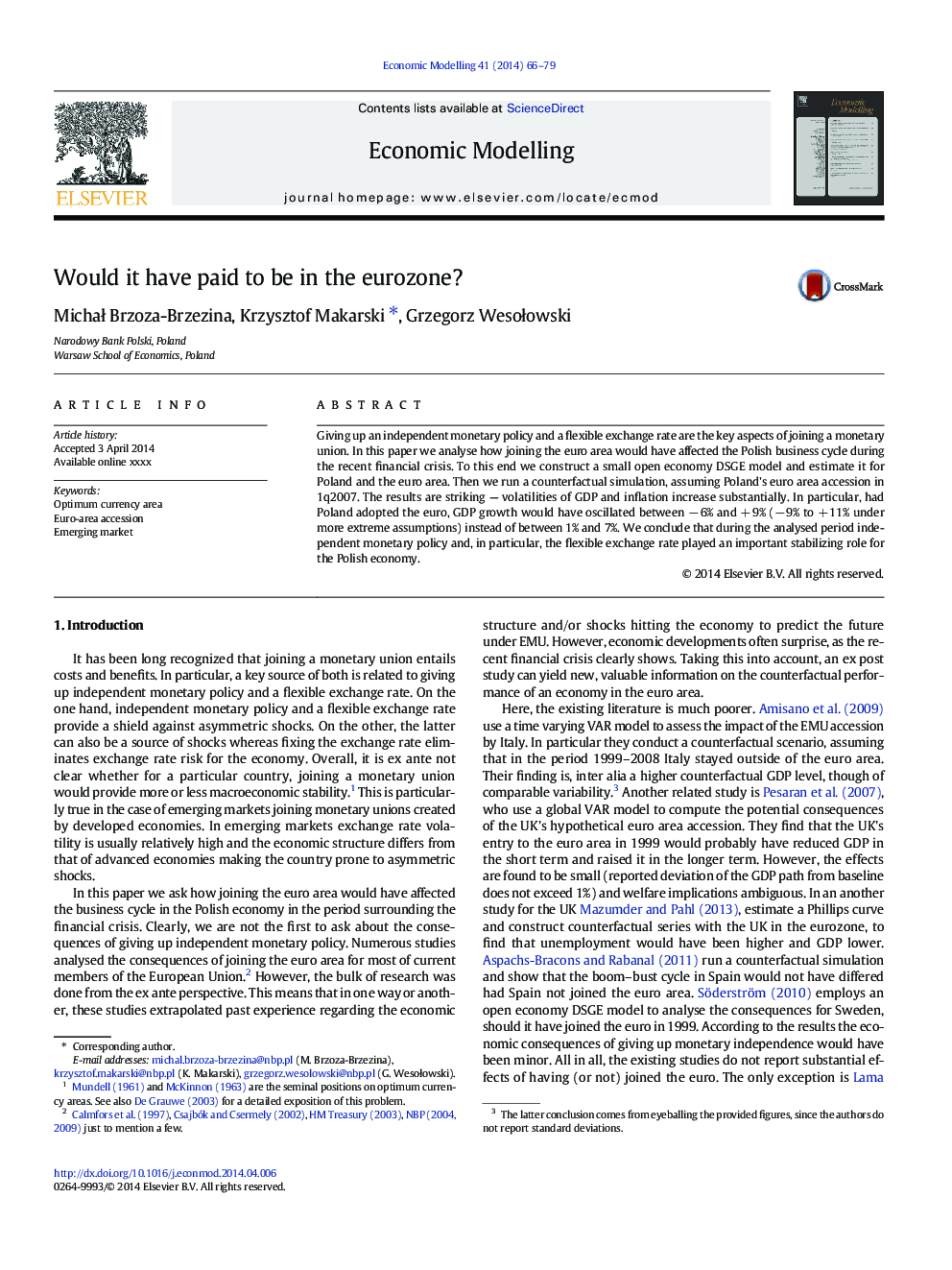| Article ID | Journal | Published Year | Pages | File Type |
|---|---|---|---|---|
| 5054115 | Economic Modelling | 2014 | 14 Pages |
Abstract
Giving up an independent monetary policy and a flexible exchange rate are the key aspects of joining a monetary union. In this paper we analyse how joining the euro area would have affected the Polish business cycle during the recent financial crisis. To this end we construct a small open economy DSGE model and estimate it for Poland and the euro area. Then we run a counterfactual simulation, assuming Poland's euro area accession in 1q2007. The results are striking - volatilities of GDP and inflation increase substantially. In particular, had Poland adopted the euro, GDP growth would have oscillated between â 6% and + 9% (â 9% to + 11% under more extreme assumptions) instead of between 1% and 7%. We conclude that during the analysed period independent monetary policy and, in particular, the flexible exchange rate played an important stabilizing role for the Polish economy.
Keywords
Related Topics
Social Sciences and Humanities
Economics, Econometrics and Finance
Economics and Econometrics
Authors
MichaÅ Brzoza-Brzezina, Krzysztof Makarski, Grzegorz WesoÅowski,
